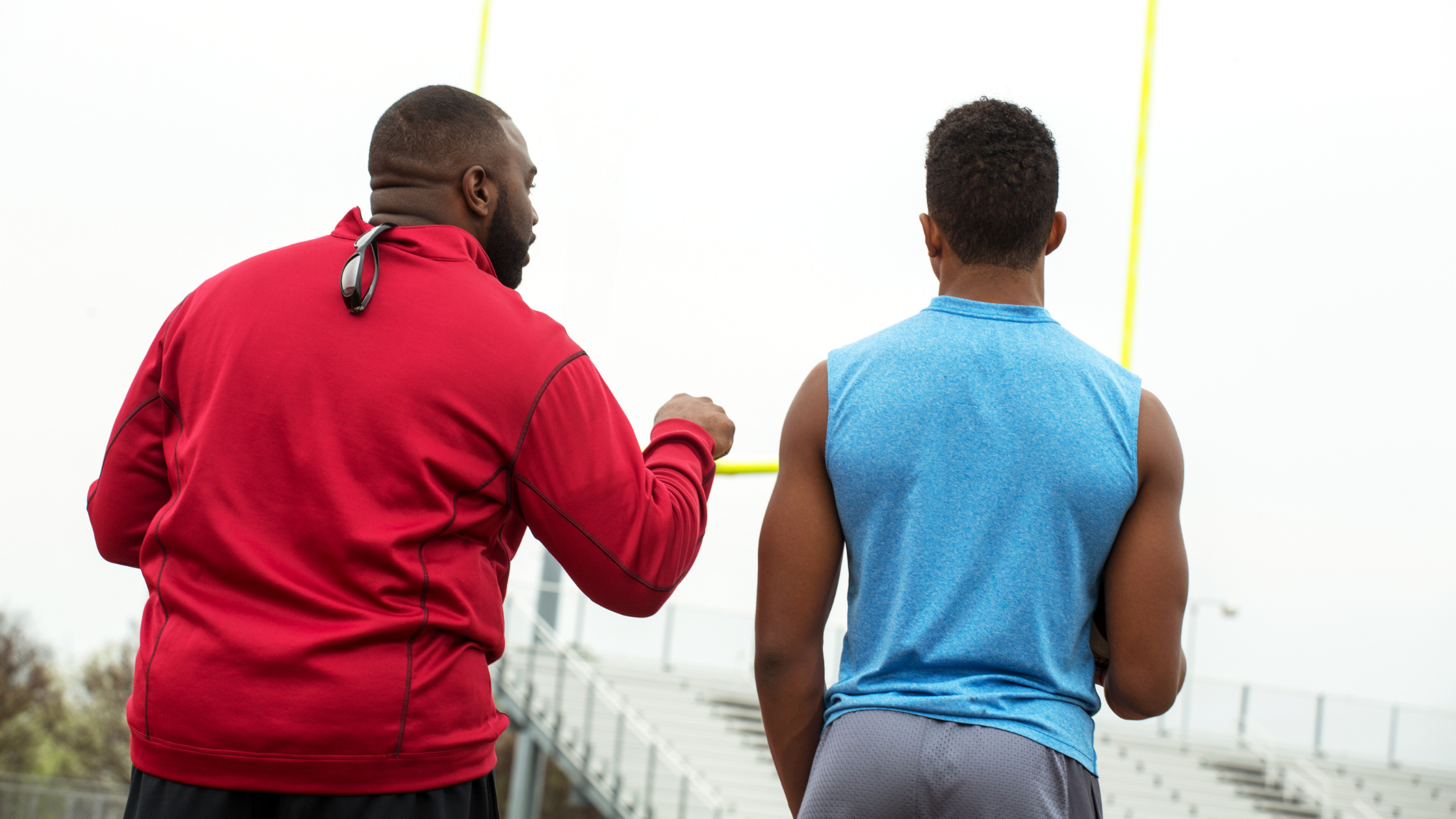Level Up Your Recruiting Game: The Ultimate Guide to Emailing College Coaches
Published on Apr 13, 2025

One of the most common first steps in the recruiting process is to send an introductory email to a prospective college coach. Emailing coaches helps to build recognition of your name and jumpstarts a conversation with a coach about how you would fit on their team and at their school.
Discover the best practices and strategies for creating an effective college coach recruiting email with Honest Game’s guidance.
When to Email a College Coach
Don’t wait for coaches to contact you; take the initiative during your sophomore year to create a starter list of potential colleges. It’s best to divide this into two lists: start with a list of schools where there is a possibility of competing, and create another list of schools where athletics are unlikely but the college or school still appeals to you.
Once the starter list of schools has been organized, you should fill out online recruiting questionnaires or prospective student-athlete questionnaires on college team sites (similar to those on the University of Connecticut prospective student-athlete site). These questionnaires will often be found on the college team website under “More +” or “Recruits” pages. After submitting an online questionnaire, you should email each college coach directly.

Where to Find College Coaches’ Contact Info
During the recruiting process, the crucial first step is figuring out how to find college coaches’ emails and the best way is to begin with a quick Google search. Most schools will list their athletic staff directory, along with their contact information on the team website. You may also find additional information on the team’s roster page. The coaching staff profiles will likely be listed at the bottom of the player roster page, where you can find the coach’s bio, job title, and contact information.
Honest Insight: In order to prevent being flooded with thousands of emails from potential recruits, Head Coaches at major programs probably won’t have their email listed publicly online. If this is the case, you can email the Director of Recruiting or one of the Assistant Coaches to introduce yourself.
The Anatomy of a Winning Recruiting Email
If you’re a high school student-athlete looking to play sports in college, you know how important it is to make a good impression on college coaches. One way to do that is by sending a well-crafted recruiting email. But what should you include in your email to make it stand out and catch their attention? Keep reading for a breakdown of the key sections of a recruiting email, with examples to help you craft your own winning message.
Greeting and Introduction: Start your email with a polite greeting, such as “Dear Coach [Last Name]” and a brief introduction that includes your name, high school, graduation year, and the sport you play. Keep it short and to the point, similar to:
Dear Coach Johnson,
My name is Sarah Smith, and I’m a senior at Franklin High School. I’m a middle blocker on our varsity volleyball team and I’m interested in playing volleyball at the collegiate level.
Show Your Interest: Next, show the coach that you have done your homework and are genuinely interested in their program. Mention specific reasons about why you are interested in their school and program, and what you like about their coaching style. You can also highlight any connections you may have to the program, such as a former teammate or coach. Here’s an example:
I was impressed by the success of your program, especially your recent conference championship win. I also have a former teammate who now plays for your team, and they’ve told me great things about the program and the coaching staff.
Highlight Your Athletic Stats and Achievements: This is where you can really showcase your athletic ability. Mention your position, height/weight, relevant stats, awards, and any other accomplishments that make you stand out as a player. You should also include a link to your athletic profile or highlight reel.
As a middle blocker, I’m 6’2″ and weigh 170 pounds. Last season, I had 200 kills, 80 blocks, and a hitting percentage of .400. Last year, I was named First Team All-Conference and I was also named the team’s Most Valuable Player. You can see some of my highlights on my Hudl profile: [insert link].
Emphasize Your Academic Stats and Honors: Academics are just as important as athletics when it comes to college recruiting, so be sure to mention your GPA, class rank, and any honors or AP courses you have taken.
Coaches value athletes who excel both on and off the field, so emphasize your academic dedication and commitment. Be sure to attach a copy of your most recent Honest Game CARE® eligibility report.
Here’s an example:
In addition to my athletic accomplishments, I have a 4.0 GPA and am ranked first in my class. I’ve taken several honors and AP courses and plan to major in biology in college. I’ve attached my Honest Game CARE® eligibility report which shows that I am a full qualifier for initial eligibility for NCAA DI.
Email Closing and Next Steps: In the closing paragraph, it’s important to thank the coach for their time and consideration, and be sure to provide your phone number, as well as the contact information for your current coaches that can serve as a reference, and invite them to learn more about you by watching your highlight reel or attending upcoming competition schedule (high school season, club season, and future recruiting camps/showcases). An example includes:
Thank you for taking the time to read my email and for consideration of the [School’s name] program. I’ve attached my upcoming competition schedule if you will be attending the [insert the name of the showcase, camp or clinic]. I have also included the contact information of my coach’s contact info who can provide references:
Coach [Coach’s Full Name]
Phone Number: [Coach’s Phone Number]
Email Address: [Coach’s Email Address]
Please feel free to contact me at [Your Phone Number] if you are interested in speaking more.
Sincerely,
[Your Full Name]
The Importance of Proofreading Your Recruiting Email
When you send an email to a potential college coach, it’s important to check for mistakes before hitting send! This means reading your email carefully to make sure everything makes sense and there are no spelling or grammar errors. By proofreading your email, you show the coach that you care about doing things right and that you’re a careful person who pays attention to details.
Honest Game Insight: Still not sure if the email is error-free? Have your parents, coach, or counselor double-check the email.
What’s Next? Be Prepared When the Coach Calls
So, you’ve sent the emails, filled out the recruiting questionnaires, and maybe even slid into a coach’s DMs – now what?
The next step is getting on a phone call or virtual meeting with the coach. But before you hop on that call, preparation is everything.
Start by reading How to Leverage Your Academics When Communicating with Coaches, where we break down how your GPA, test scores, and course rigor can give you an edge – especially if you’re not the only standout athlete they’re considering.
Next, check out How to Talk with College Coaches for tips on how to confidently introduce yourself, what information coaches are looking for, and how to build out a strong list of questions to ask during your call. Then go deeper with How to Talk with College Coaches – Part 2, which covers common questions coaches may ask you, how to spot red flags, and how to determine if a school is the right fit – not just for your athletic goals, but for your academic and personal journey too.
The more prepared you are, the more confident you’ll be when it matters most.
Ready to take your recruiting game to the next level? Schedule a virtual counseling session with our Honest Game experts today and get personalized guidance on navigating the college coach email process and maximizing your chances of success. Don’t miss out on this opportunity to gain a competitive edge. Book your session now!

A former High School Athletic Director with more than 14 years of experience, Courtney has guided thousands of student-athletes through the NCAA and NAIA college eligibility and athletic recruiting process.



